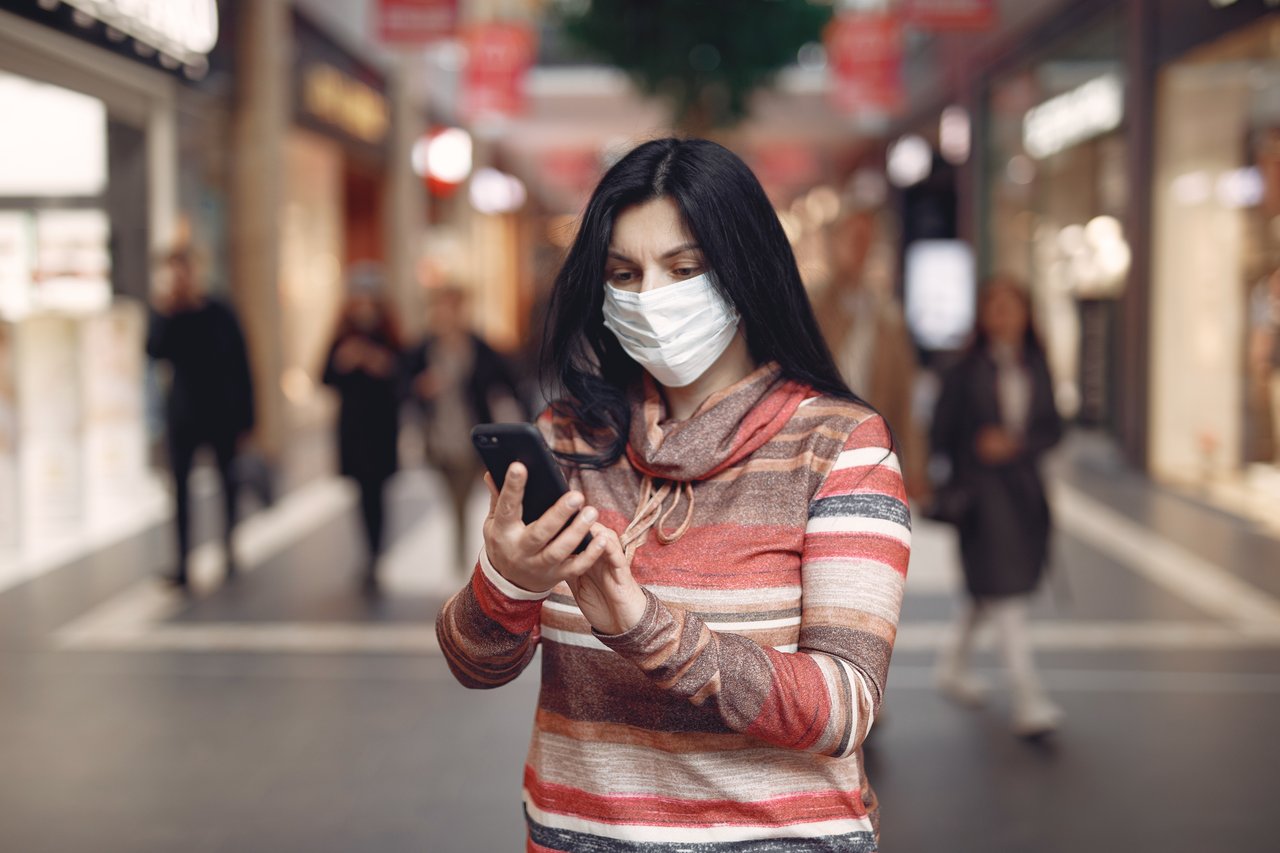

COVID Commerce
The government has signalled the NHS Covid contact tracing app used in England and Wales may need to be adjusted, as coronavirus restrictions change.
This is according to Transport Secretary Grant Shapps who was speaking to BBC Breakfast. Many restrictions in England are set to be eased on 19 July, which he said will necessitate the need to reduce the app’s sensitivity.
At the moment the app detects the distance between users and the length of time spent in close proximity – currently 2m or less and more than 15 minutes.
But as the UK relaxes restrictions thanks to its hugely successful vaccine rollout, there has been large rise in alerts as infections surge.
This is because the vaccines don’t stop people catching Covid-19, they do however stop (or greatly lessen) the chances of people dying or being hospitalised because of it.
The way things stand at the moment, the system allows people who test positive to anonymously share their test result, triggering alerts for those detected as close contacts in the days before the test.
Currently when a person who receive an alert, they are asked to stay at home for up to 10 days, although the Department of Health said the app “is, and always has been, advisory” – unlike the requirement to isolate if you are contacted directly by NHS Test and Trace.
As restrictions ease and infections go up, many people could face receiving alerts.
One solution could be to change the sensitivity of the app, so it would tell people to self-isolate only after closer and more prolonged contact.
“As our restrictions change, of course the app needs to change,” Shapps told BBC Breakfast. “Things like replacing the 1m-plus rule on 19 July might well lead to a review of the way the app itself needs to function.”
That said, he did state that the app was still “very important as one of the tools in our armoury.”
Shapps said there were still large numbers of people downloading it and said he had not seen any data showing people were deleting it.
The most recent figures for the last week of June show an extra 300,000 downloads, bringing the total to more than 26 million, but it is not known how many people are active users.
“It’s in our interests as a society to carry on doing the things that protect each other,” Shapps reportedly said.
It is hoped any changes to the apps will be quick.
After some delays, the NHS Covid-19 app had been made available for download to people in England and Wales in September 2020, in an effort to control Coronavirus transmission.
The app forms a central part of the NHS Test and Trace service in England and the NHS Wales Test, Trace, Protect programme.
Essentially, the contact tracing element of the app works by using Bluetooth to log the amount of time a person spend near other app users, and the distance between them, so it can alert the person if someone they have been close to (on public transport or in the supermarket for example) later tests positive for Covid-19 – even if they don’t know the other person.
The app will advise the user to self-isolate if they have been in close contact with a confirmed case. It will also enable the user to check symptoms, book a free test if needed and get test results.
The government stressed that the app has been designed with user privacy in mind, so it tracks the virus, not people.
According to the government, the system generates a random ID for an individual’s device, which can be exchanged between devices via Bluetooth (not GPS).
These unique random IDs regenerate frequently to add an extra layer of security and preserve anonymity.
Another privacy safeguard is that the app does not hold personal information such as name, address or date of birth, and only requires the first half of a person’s postcode to ensure local outbreaks can be managed.
No personal data is shared with the government or the NHS.
Apps using Apple and Google’s Exposure Notifications platform are barred from sending precise location data to public health authorities, or to the two tech companies.
The NHS switched to the Exposure Notifications platform in June 2020 after finding that its initial, independent system missed too many instances where virus transmission could have occurred.
In April this year Apple and Google blocked an update to the NHS’ Covid-19 contact tracing app over a violation of their privacy rules.
American space agency prepares for testing of Boeing's Starliner, to ensure it has two space…
As UK and Europe develop closer military ties, European Commission says it will invest €1.3…
Zuckerberg seeks to revive Facebook's original spirit, as Meta launches Facebook Friends tab, so users…
Notable development for Meta, after appeal against 2021 WhatsApp privacy fine is backed by advisor…
First sign of shake-up under new CEO Lip-Bu Tan? Three Intel board members confirm they…
Trump's nominee for SEC Chairman, Paul Atkins, has pledged a “rational, coherent, and principled approach”…